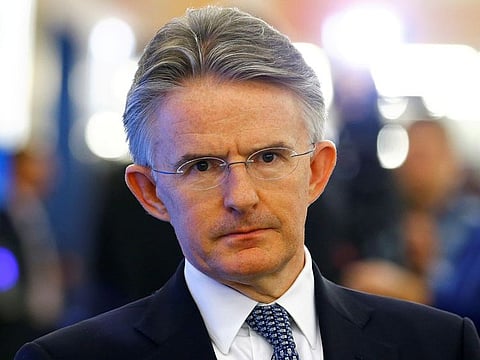‘Forever grateful’: New adventures for HSBC ex-CEO John Flint
After he parted ways with HSBC, former chief executive takes to social media

HSBC’s former chief executive, John Flint, has taken to social media a year after he parted ways with one of the world’s biggest banks.
In a self-titled LinkedIn post on August 5, 2020, called “New adventures”, Flint addressed his former collegues and friends, stating: “I will be forever grateful.”
His departure came less than 18 months after his appointment. The bank said it could cut nearly 5,000 jobs due to a weaker outlook, though the bank also said it was hiring 3,000 people China.
Forbes reported that Flint was “fired” from his post, while the British media stated the cause of his departure was “vague”.
A Guardian report states that the decision was mutual, and that the bank’s board believed a change was needed to meet the challenges faced.
'NEW ADVENTURES...'
This is my first post on LinkedIn, written on the first weekend since October 1989 that I am not an employee of HSBC (11,251 days if my maths is correct!) My “gardening leave” is complete, and it is time for new adventures. My journey from International Officer Trainee to Group Chief Executive was such a privilege. I worked with so many talented people, learned more than I ever thought possible, and have nothing but the greatest affection for the Group, its staff, and the customers who trusted us to serve them. I would like to thank my colleagues and friends who provided such wonderful support to me and my family, from my first day at the Bank through to the last. I will be forever grateful.😊 [LinkedIn]
Flint, 52, served as group chief executive of HSBC Group from February 2018, having succeeded Stuart Gulliver. After serving for about 18 months, Flint announced on August 5, 2020 that he is stepping down from the position.
His exit sparked a speculation in the British media — a possible clash with HSBC chairman, Mark Tucker, who was hired from outside the bank or due to political pressure from Beijing.
Flint was reportedly paid £4.6m ($6.04 million) last year.
The Guardian reported that Chinese authorities were reportedly upset to learn that HSBC passed information detailing its relationship with the tech giant Huawei to the US Department of Justice in 2017.
The request for information came while HSBC was being monitored by US authorities over sanctions-busting and a failure to prevent money laundering in Mexico.
The information ultimately helped the US build a case that led to the arrest last year of Meng Wanzhou, Huawei’s finance chief and the daughter of its founder.









